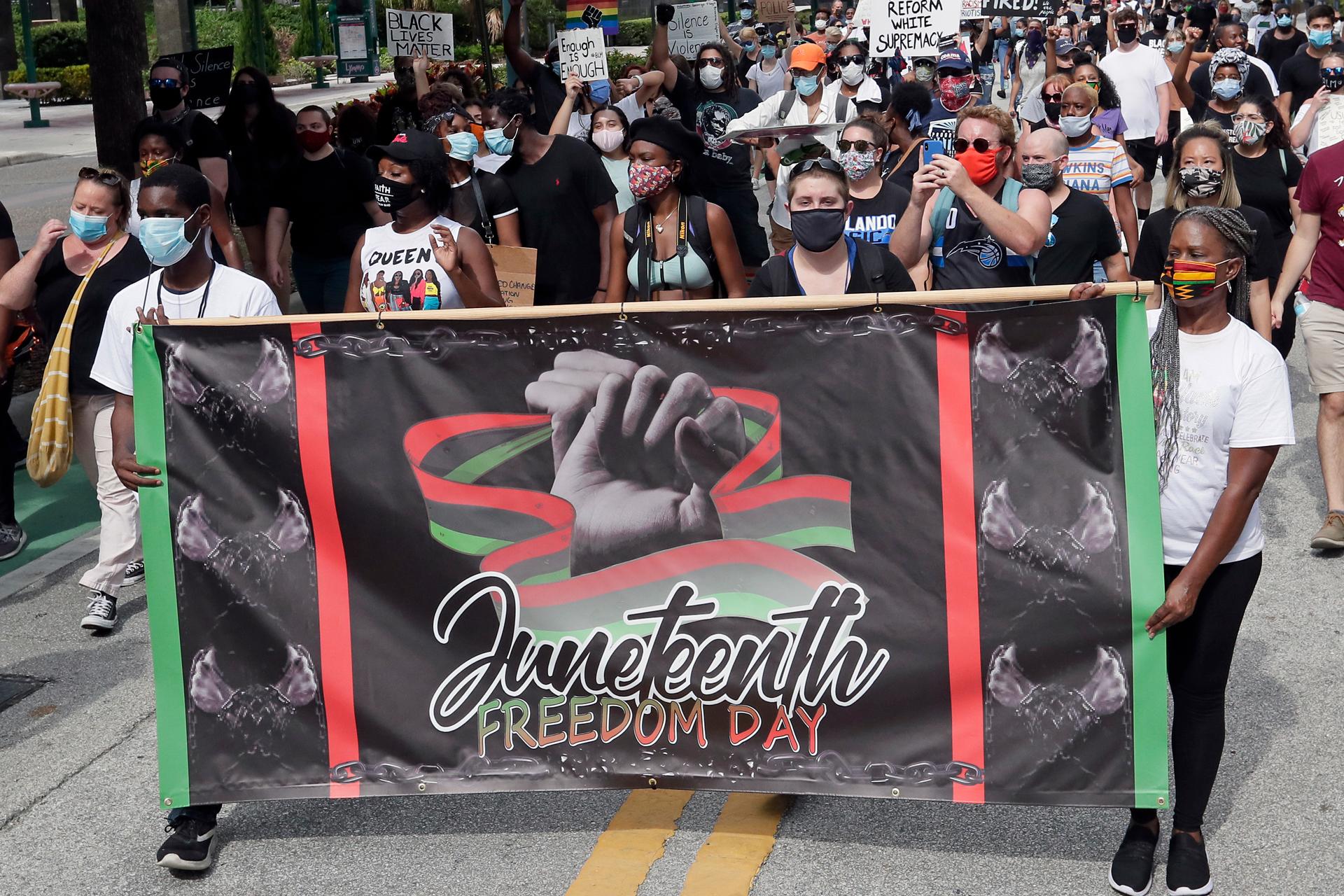Ayana Najuma is an American teacher working in China. She moved to the country four years ago after spending more than a decade at Cincinnati public schools.
She said she has no intention of returning to the US.
Related: China’s ultramarathoners sound alarm on lack of safety precautions at races
“I am safe as a Brown person in China,” Najuma said. “You know, of course, there are CCTV cameras everywhere monitoring our comings and goings. And so, that allows me a great deal of comfort. Chances are, no one is going to try to harm me.”
Still, she admits that life in China can be isolating at times. Even though her city, Hefei, has more people than New York City, Najuma says she can count on one hand the number of people she’s seen who look like her.
That’s why, this weekend, Najuma is traveling almost 300 miles away to Shanghai to join one of China’s first official Juneteenth celebrations.
Juneteenth — marking the day in 1865 when Union soldiers brought news of freedom to enslaved Black people in Galveston, Texas — became a federally recognized holiday in the US on June 15.
Related: A new film explores the stories of 6 men from China who survived the Titanic sinking
For Najuma and other Black Americans living in China, the festivities have special meaning — especially since international travel from the country is nearly impossible right now.
Najuma says she celebrated the holiday as a child at barbecues that her mom helped organize. This will be her first time celebrating the holiday in China.
“I’m looking forward to getting some real serious hugs. You know, just those deep, soul-grabbing hugs.”
“I’m looking forward to getting some real serious hugs,” she said. “You know, just those deep, soul-grabbing hugs.”
Unlike Najuma, some of the organizers of Shanghai’s Juneteenth celebration didn’t grow up celebrating the holiday.
Related: China now allows 3 kids per family, but many couples say they can’t afford it
Bruce Robinson and his wife Tess came to Shanghai 15 years ago on a one-year assignment and ended up staying. Now, he works as an executive coach there.
“You can find your community and you can re-create that Black experience, even outside the United States,” he said.
Before the pandemic, he organized a Black men’s group, a kind of barbershop group for networking and mentoring. But they haven’t met in person for over a year now. He said as China recovers from COVID-19, the time is ripe for a return to in-person gatherings.
“We get a chance to come together and celebrate our heritage, even though many of us are not able to return home,” he said. “Some people haven’t seen their loved ones for over a year. And I really think people are looking for that sense of community.”
Related: Chinese students in the US grapple with the rise in anti-Asian hate crimes
He and the other organizers thought a Juneteenth celebration might be a way to grow the Black-owned business community — many of which will be at the celebration, selling their products and services.
“There’s an entrepreneurship by example, and of recycling Black dollars, if you will, through commerce,” Robinson said.
Fellow organizer William Frazier first came to Shanghai 20 years ago. He put down roots, married a Chinese woman and started his own business. Even though he’s never celebrated Juneteenth before, he says he hopes this will become an annual event in the country, with music, art and culture.
“In essence, we want to bring the feeling of Juneteenth in the US, we want to bring it here,” he said. “In other words, we want people to just let their hair down.”
Najuma said that’s exactly what she hopes to do on Saturday.
“We are going to love on each other because we know we’re all that we have in this moment in time that we get to share together,” she said. “We will come as strangers, but we will leave as family.”
The Associated Press contributed to this report.
